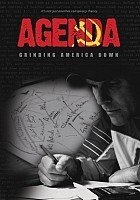Bryan Cranston to Retire From Acting to Focus on Marriage: ‘We Want To Go The Distance’
By Movieguide® Contributor
BREAKING BAD star Bryan Cranston recently announced his plans to retire from the entertainment industry and focus on his marriage.
Cranston told GQ that it’s time to “change the paradigm” in his relationship with wife Robin Dearden.
The couple met while filming a scene for the military drama AIRWOLF. They started dating soon after and wed in 1989. They share a daughter, Taylor, who was born in 1993.
“For the last 24 years, Robin has led her life holding onto my tail,” he explained. “She’s been the plus one, she’s been the wife of a celebrity. She’s had to pivot and adjust her life based on mine. She has tremendous benefit from it, but we’re uneven. I want to level that out. She deserves it.”
He continued, “I love my wife, and we want to go the distance, but I want to do it in a healthy way. I don’t want to just be with her. I don’t want to just have the two of us go into a restaurant and no one says a word.”
Movieguide® previously reported on Cranston’s thoughts on the entertainment industry, including cancel culture:
Hollywood star Bryan Cranston called for more forgiveness to start the new year amid the mob’s readiness to adopt a “cancel culture” mindset.
“We live in this ‘cancel culture’ of people erring and doing wrong — either on purpose or by accident — and there’s less forgiveness in our world,” Cranston told the Associated Press. “I think we’re unfortunately in a coarser environment. I think our societies have become harder and less understanding, less tolerant, less forgiving.”
The 64-year-old actor continued: “Where does forgiveness live in our society? Where can we accept someone’s behavior if they are contrite, if they are apologetic and take responsibility?”
Cranston proposed that forgiveness is a better answer to an apologetic offender than a mob mentality of cancel culture.
“I think we need to take a second look at that, exhale, and realize that asking forgiveness and receiving forgiveness are not weaknesses,” Cranston said, “but are human strengths.”



 - Content:
- Content: 

